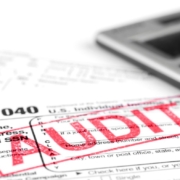JUNE 30 – DEADLINE FOR REPORTING FOREIGN FINANCIAL INTERESTS
Article Summary:
- Foreign Account Reporting Requirement
- Financial Crimes Enforcement Network
- Penalties for Failure to File
- Type of Accounts Affected
- Form 8938 Filing Requirements
Every U.S. citizen and resident who has a financial interest in or signature or other authority over any foreign financial accounts, including bank, securities, or other types of financial accounts in a foreign country, are required to report that relationship if the aggregate value of the accounts exceeds $10,000 at any time during the year.
The reporting is accomplished by filing FinCEN Form 114, frequently referred to as the foreign bank account report (FBAR) on or before June 30 of the succeeding year. Thus, for the 2015 tax year the FBAR must be filed by June 30, 2016. The filing is done electronically on the Financial Crimes Enforcement website. For the 2015 tax year, there are no extensions and civil penalties for non-willful violations, which can be as high as $10,000. The penalty for willful violations is the greater of $100,000 or 50% of the account’s balance at the time of the violation.
A “financial account” includes securities, brokerage, savings, checking, deposit, time deposit, or other accounts at a financial institution. Commodity futures and options accounts, mutual funds, and even non-monetary assets such as gold are also included. It becomes a “foreign financial account” if the financial institution is located in a foreign country. If you own shares of a foreign stock or a mutual fund that invests in foreign stocks and is held in an account at a financial institution or brokerage located in the U.S., this is not considered a foreign financial account, and the FBAR rules don’t apply to it. An account maintained with the branch of a foreign bank physically located in the U.S. also is not a foreign financial account.
You may have an FBAR requirement and not even realize it. For instance, perhaps you have relatives residing in a foreign county who have put you on their bank account in case something happens to them. If the value of the account exceeds $10,000 at any time during the year, you will need to file the FBAR. Or if you are gambling on the Internet, that online casino may be located in a foreign country, and if your account exceeds the $10,000 limit at any time during the year, you will have an FBAR-reporting requirement.
You may also have an additional requirement to file Form 8938, which is similar to the FBAR requirement but applies to a wider range of foreign assets with a higher dollar threshold. If you are married and filing jointly with your spouse, you must file Form 8938 if the value of certain financial assets exceeds $100,000 at the end of the year or $150,000 at any time during the year. If you live abroad, the thresholds are $400,000 and $600,000, respectively. For other filing statuses, the thresholds are half of those amounts. The penalty for failing to file the 8938 is $10,000 per year, and if the failure continues for more than 90 days after you receive an IRS notice of failure to file, the penalty can go as high $50,000. Form 8938 should be filed with your individual tax return for the year by the due date (including extensions) of that return. If you have already filed your 2015 tax return and believe you may have an 8938 filing requirement that wasn’t met on the return you filed, you should call this office immediately.
As you can see, not complying with the foreign account reporting requirements can have some very nasty repercussions, and reporting can be complicated. The foregoing is an overview of the reporting requirements. Please call this office for additional details that may apply to your particular situation. Please call well in advance of the June 30 date if you need assistance in meeting your FBAR reporting obligation. Remember, there are no extensions for the FinCEN 114 filing.








Leave a Reply
Want to join the discussion?Feel free to contribute!